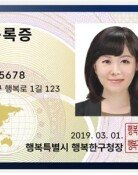Excessive measures for upcoming election
Excessive measures for upcoming election
Posted March. 30, 2021 07:30,
Updated March. 30, 2021 07:30
“Expand the property registration system to all government officials and develop a system for on-going examination of change and increase in wealth of public officials since their first appointment,” South Korean President Moon said on Monday at the urgent anti-corruption policy meeting held in the Blue House, “Unlawful gains should be completely recovered.” The government and the ruling party decided to pursue the legislation of retroactively confiscating gains from real estate speculation at the government-ruling party meeting on Sunday. Retroactive legislation may be in violation of the Constitution, and the practical effects of the expanded property registration system are doubtful. Strong measures against speculation are needed, but this action may be viewed as excessive measures in consideration of the upcoming election.
According to the ruling party, public officials involved in speculation are categorized the same as pro-Japanese collaborators. They perceive that retroactive confiscation of gains from real estate speculation is not unconstitutional, as there is a special law to retroactively confiscate wealth accumulated by pro-Japanese figures during the Japanese colonial period. According to the Constitution, however, laws apply to crimes committed after their legislation. Retroactive confiscation may lead to Constitutional appeals and old unlawful gains are hard to prove.
The National Assembly passed a revised bill of the Special Act on Public Housing on Wednesday. The bill is to punish government officials involved in speculation utilizing undisclosed information by life imprisonment and confiscate their unlawful gains. Three to five times unlawful gains are imposed as fines. Legislation for retroactive confiscation right after passing such a bill causes controversy of violating the principle of proportional punishment. Another point of controversy is from when and to whom the law will be applied retroactively.
Those subject to the government’s expanded property registration system include all public officials – civil servant of all grades and employees of public institutions. Assuming that they have a family of four on average, six million people will be subject to the system, including teachers at public schools and medical professionals at public and national hospitals who are irrelevant to speculative information. They may have to register in advance whenever selling or buying a house. President Moon also announced that a real estate transaction analysis center will be set up as an on-going monitoring institution. Constant examination of all public officials’ wealth and operation of a real estate monitoring institution will inevitably require a lot of administrative capacity.
Since the speculation issue of the Korea Land and Housing Corporation, the government and the ruling party have used harsh language, such as ‘traitors’ and ‘ruining the entire household.’ Nobody will stand in the way of preventing corruption. Illegally planned real estates and speculation under borrowed names need to be completely rooted out. However, a bill that retroactively confiscates properties and ruins the entire household requires sufficient review before legislation. Preventing speculation requires the consistent implementation of practical measures, not threats.






